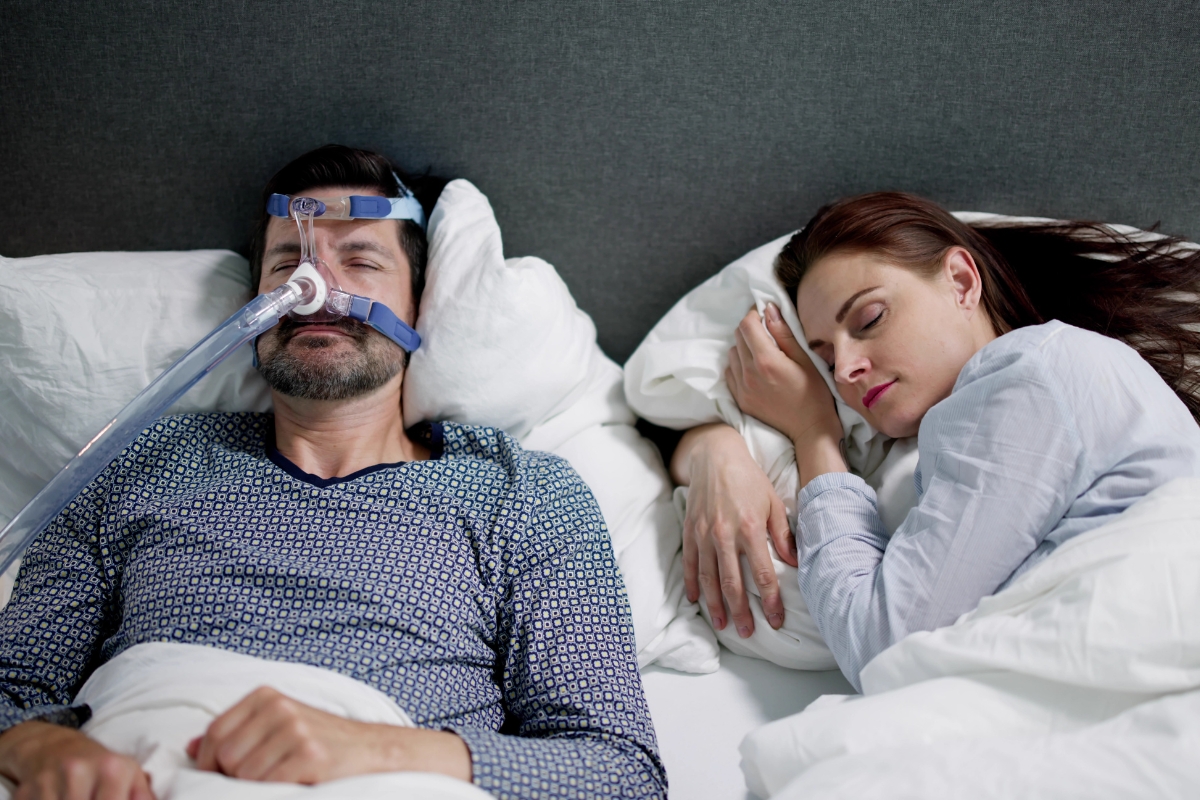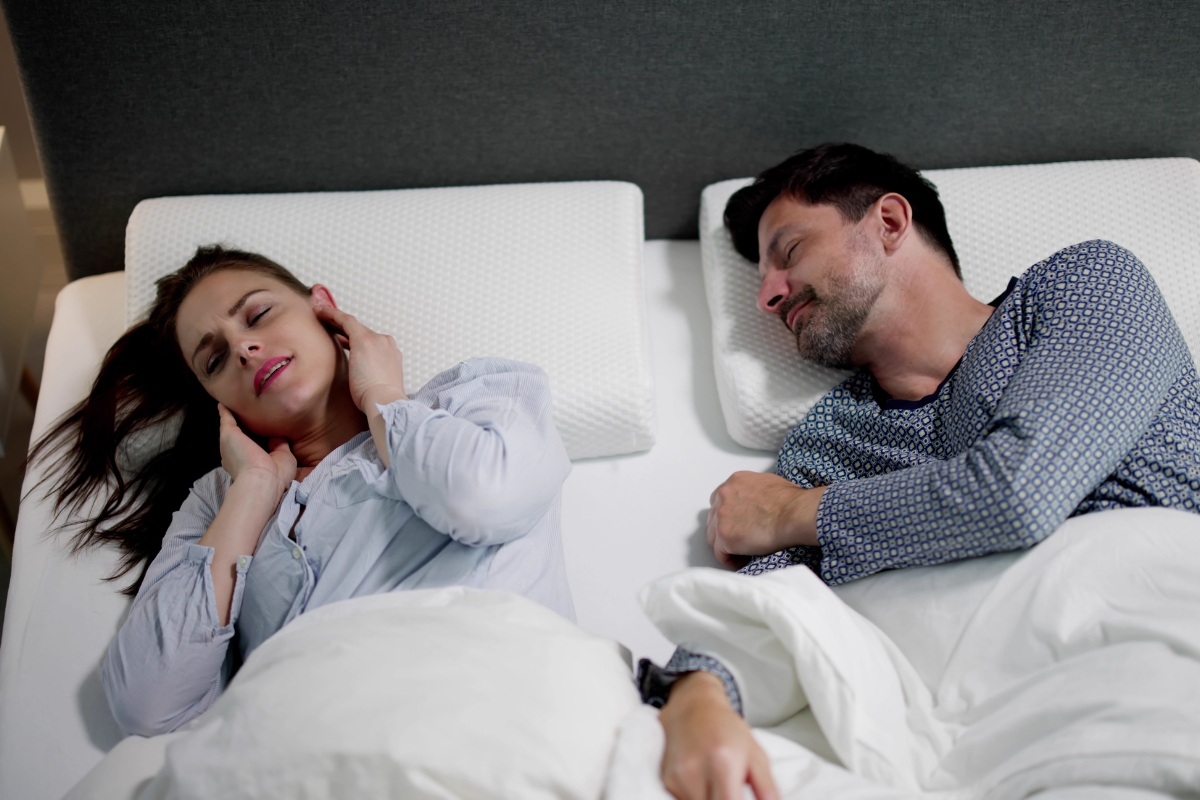Effective Snoring Solutions: How To Sleep Peacefully Again?

Snoring affects millions of people around the world, disrupting not only your sleep but also the sleep of those around you. It can lead to frustration, fatigue, and even health issues like heart disease if left untreated.
If you’re looking for ways to stop snoring and get a good night’s sleep, you’re in the right place. This guide will introduce you to the causes of snoring, the impact it has on your health, and effective solutions, including sleep apnea treatment.
Why Do We Snore?
Snoring occurs when airflow through the mouth and nose is partially obstructed. The vibrations of tissues in the throat cause the familiar sound. This blockage can happen due to several reasons:
- Nasal Issues: Blocked or stuffy nasal passages can force you to breathe through your mouth, leading to snoring.
- Obesity: Extra weight around the neck and throat can contribute to airway obstruction.
- Sleep Position: Sleeping on your back can cause your tongue to fall back into your throat, restricting airflow.
- Sleep Apnea: A more serious cause of snoring, where breathing stops temporarily during sleep, is known as obstructive sleep apnea.
Importance of Addressing Snoring
Snoring might seem like a simple nuisance, but it can have far-reaching effects on your overall health. It can cause:
- Fatigue and Poor Sleep Quality: Snoring often disrupts the sleep cycle, leaving you feeling tired during the day.
- Increased Risk of Heart Disease: Snoring, especially when accompanied by sleep apnea, has been linked to an increased risk of cardiovascular issues.
- Relationship Strain: Chronic snoring can cause frustration and lead to sleep disturbances for your partner.
Sleep Apnea & Snoring: How Are They Connected?
If snoring is accompanied by gasping, choking, or long pauses in breathing during sleep, it might be a sign of sleep apnea, a condition that requires immediate attention. Studies suggest that approximately 22 million Americans suffer from sleep apnea, with 80% of those cases undiagnosed.
The good news is that sleep apnea treatment in Tustin can help resolve the issue, making snoring less frequent or even eliminating it.
Here are some of the most effective snoring solutions to stop snoring and get the restful sleep you deserve.
1. Change Your Sleep Position
Your sleep position can have a big impact on snoring. Sleeping on your back can cause your tongue to fall back into your throat, narrowing the airway and making snoring more likely. Sleeping on your side can help prevent this.
Tip: Consider using a body pillow to encourage side sleeping.
2. Address Nasal Congestion
Nasal congestion is one of the most common causes of snoring. If your nasal passages are blocked, it forces you to breathe through your mouth, which can increase the likelihood of snoring.
Solution: Use nasal decongestants or saline sprays before bed to clear up nasal passages. You can also use a humidifier to keep your airways moist.
3. Lose Excess Weight
Being overweight can contribute to snoring, as extra fat around your neck can obstruct your airways. Losing weight can help reduce the fatty tissue in the throat and decrease snoring.
Stat: Research shows that losing just 10% of your body weight can significantly reduce snoring.
4. Avoid Alcohol and Sedatives Before Bed
Alcohol and sedatives relax the muscles in your throat, making it more likely that you’ll snore. Avoid consuming alcohol or taking sedatives before bed to keep your throat muscles from becoming too relaxed.
Tip: Try to avoid alcohol at least 3 hours before bedtime to reduce snoring.
5. CPAP Machines for Sleep Apnea
For those suffering from sleep apnea, a CPAP machine (Continuous Positive Airway Pressure) is one of the most effective treatments. The machine delivers a continuous flow of air through a mask, keeping your airways open while you sleep.
Tip: A CPAP machine can significantly reduce or eliminate snoring caused by sleep apnea.
6. Dental Appliances
If your snoring is due to jaw misalignment or airway obstruction, dental appliances such as mandibular advancement devices (MAD) can help. These devices gently reposition the jaw to keep the airway open, reducing the chances of snoring.
Solution: Consult a dentist to see if a custom-made dental appliance could help you sleep better.
7. Maintain Healthy Sleep Habits
Finally, practicing good sleep hygiene is key to improving your overall sleep quality and reducing snoring. Going to bed and waking up at the same time every day, getting 7-9 hours of sleep, and creating a relaxing bedtime routine can all help.
Tip: Establish a calming pre-bedtime routine, such as reading or taking a warm bath, to help you fall asleep faster and more soundly.
Snoring is a common issue that can affect your health, relationships, and overall well-being. By understanding the causes of snoring and exploring the available solutions, you can take steps toward better sleep and a healthier life.
Whether it’s adjusting your sleep position, losing weight, using CPAP therapy, or considering sleep apnea treatment, there are plenty of options to help you sleep more peacefully. Don’t let snoring disrupt your life—take action today and enjoy better sleep tonight.




